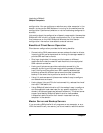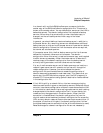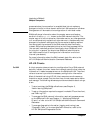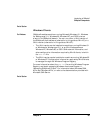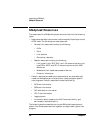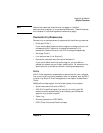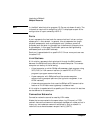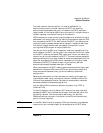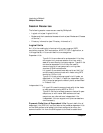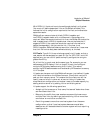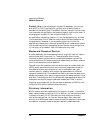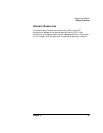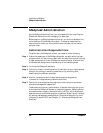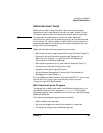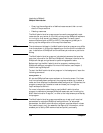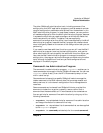
94 Chapter 2
Introduction to SNAplus2
SNAplus2 Resources
Session Resources
The following session resources are used by SNAplus2:
• Logical units (see “Logical Units”)
• Modes and their associated classes of service (see “Modes and Classes
of Service”)
• Directory information (see “Directory Information”)
Logical Units
An LU is the node's point of contact with a user program (3270
emulation program, RJE workstation, APPC TP, CPI-C application, or
LUA application). LUs are divided into two categories:
Dependent LUs
Type 0–3 LUs are referred to as dependent LUs; they
can support only one user session at a time, and a
session is controlled by the host program. Type 6.2 LUs
can also be dependent LUs if they are used to
communicate with host computers running older
versions of SNA host software.
LU types 0–3 are sometimes referred to as “old LUs,”
and are used to communicate with hosts using 3270
emulation, RJE,or LUA.
Type 0–3 LUs can also be grouped into LU pools, as
described in “LU Pools”. In addition, dependent type
6.2 LUs can be assigned to default pools, as described
in “Default LUs”.
Independent LUs
LU type 6.2 is used to communicate with either hosts
or peer computers using APPC or CPI-C.
Type 6.2 LUs that are used to communicate with peer
computers, or with newer SNA software on host
computers, are referred to as independent LUs.
Independent LUs can support multiple user sessions
simultaneously.
Dynamic Definition of Dependent LUs. Dynamic definition of
dependent LUs (DDDLU) is a host feature that enables dependent LUs
on the SNA system to be added to the host configuration when the
communication link from the SNA system to the host is established.



